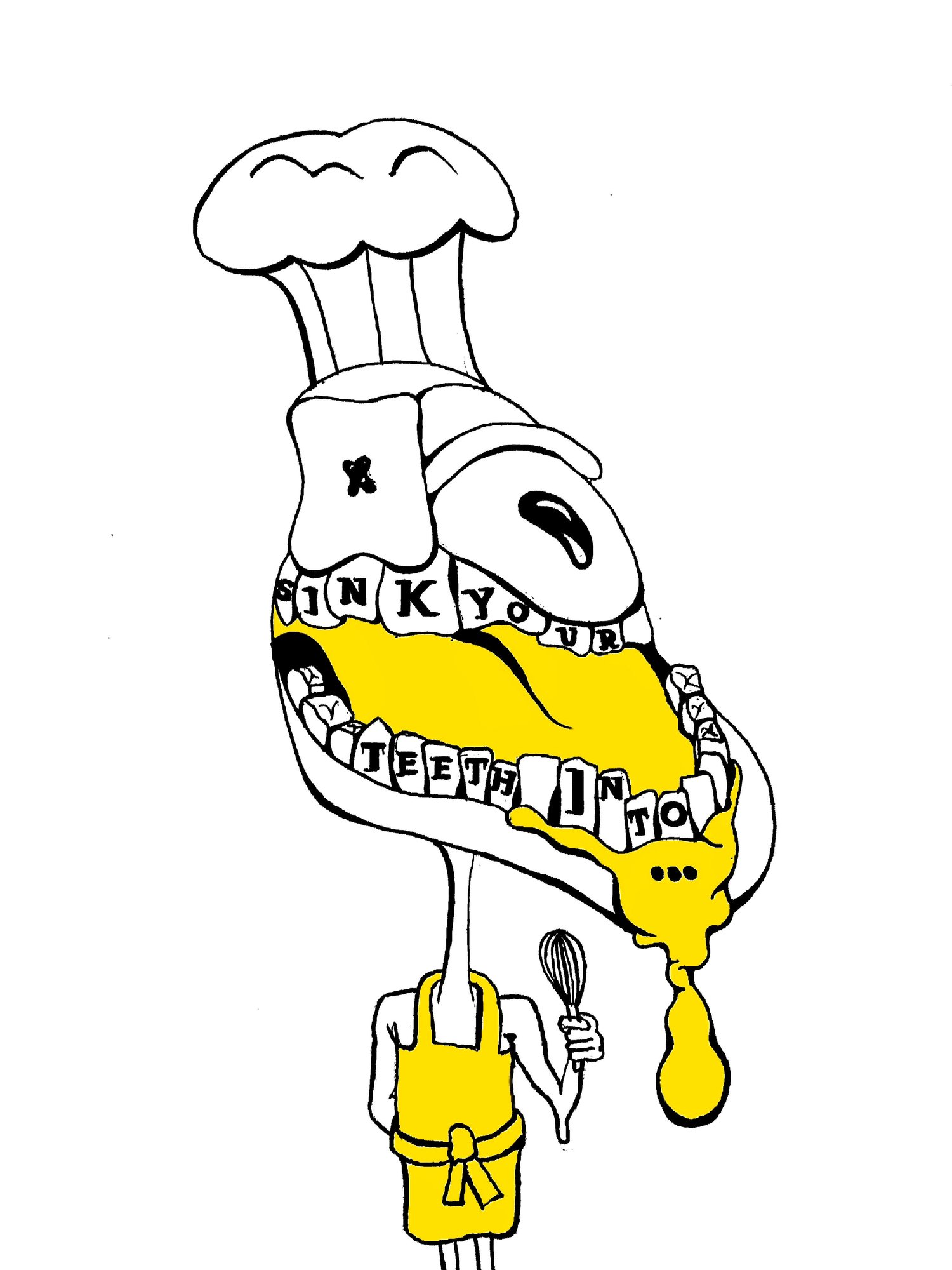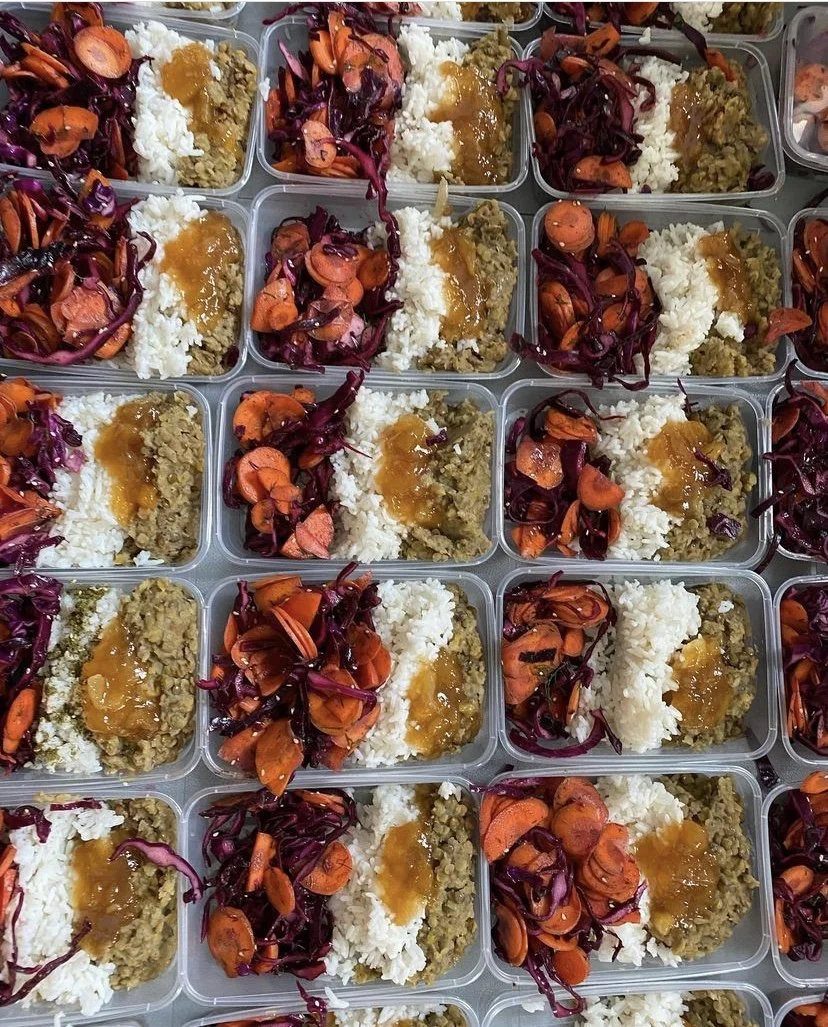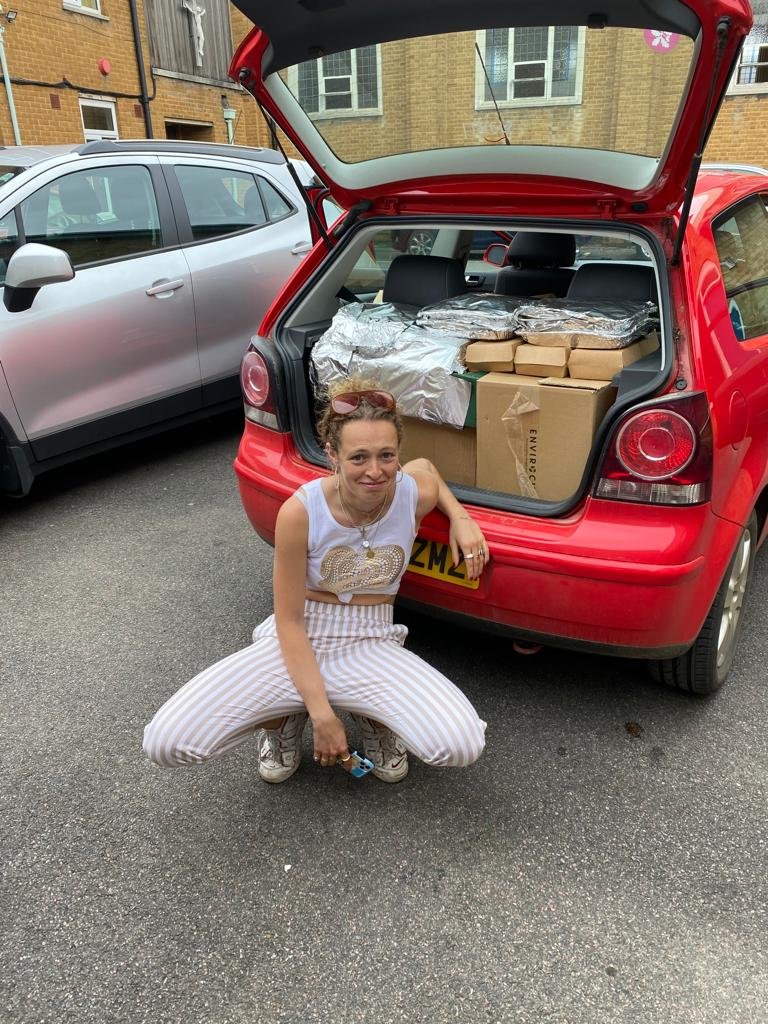Let Yourself In to Open Door Community Kitchen.
One night I was on the tube coming home from work, when a woman asked if I had any money for food. I had no change but luckily remembered I had a sandwich on me. I drew it from my bag with all the self-importance of a messianic Mary Poppins. Because what a sandwich she was. Chabichou de Poitou and homemade beetroot chutney, all tucked up in one of the golden baguettes my work imports daily from a Parisian bakery. Sure, I had my greedy eye on this unsold lunch rush remnant. Sure, the promise of the sandwich’s tangy caress was the only thing getting me through nine hours of dishwasher steam slowly fusing my contact lenses to my corneas. But it was fine! Because, I’m a giver. I give. It’s who I am. And today, I was going to give one lucky lady a taste of The Continent. A petit piece of Paris, if you will. I imagined the calls I’d receive once the press were alerted to my radical act of philanthropy. “Why yes I did sacrifice my Chabichou so a woman in need could feast like a queen!” passers-by would hear. “You want me to…. Speak at the UN? Well... I am honoured, Malala…” - I was too busy scheming my humble response to notice that the woman in question was anything but excited. She examined the object, turning it in her hands suspiciously. She tossed it back. No thought for my saviourism, she simply shrugged, “I don’t like goat’s cheese.” I walked home wounded and bemused, albeit nibbling a really, really nice sandwich to cushion the blow.
“If you’re living on the street, and your meal is the only thing you have control of, you should be able to say, ‘I actually don’t want this’.” I’m talking to Clem and Phoebe, the founders of Open Door Community Kitchen, who have thought things through a lot better than I. “Our customers are the pickiest customers I’ve ever met, and rightly so.” Referring to the recipients of Open Door’s weekly homemade free hot meals as “customers” or “guests” is just one of the ways they are reimagining food charity in London. Turns out, a similar thing to Goats-Cheese-Baguette-Gate™ happened to them in their first few weeks. A customer rejected a piping hot chickpea curry, throwing it at their feet. “I don’t think we had been that upset for a while,” Clem shares. “It was hard.” But for Open Door’s inventors, there is nothing remotely absurd about a person in need rejecting charity given with the best intention. “It was hard but it was also a big turning point. The lesson was that we wanted to talk to our customers and the people we were working with. Now we talk to our guests and ask ‘did they like that? What didn’t they like?’”.
Dahl with slaw, rice and mango chutney topped with za’atar and lemon for ODCK customers.
In an age of tribal political factions, it is both refreshing and imperative that self-evaluation is at every corner of Phoebe and Clem’s social justice. Meat, for example, was incorporated into their largely plant based repertoire as it became clear customers were after something more akin to the protein dense, warming comforts of their past. Environmental consciousness and providing maximum comfort to their guests seem to exist in a push and pull tension. “Us trying to be eco warriors, we thought that we should make our packaging compostable. But what we didn’t quite appreciate was that compostable packaging with liquid in it has a lifespan of about three minutes.” The pools of sauce that seeped from decaying boxes of veggie chilli and collected in the boot of Phoebe’s Polo was enough to indicate that sometimes, the morals we forge in a context of privilege can’t always be so fiercely protected when prioritising sharing tangible, holistic love with our immediate neighbours. But let’s keep our hair on. We’re not talking about a Pretty Little Thing 1p Black Friday Sale here. Open Door’s model is more sustainable than most, with meat and ingredients being donated by City Harvest London; a charity that takes the city’s food surplus and relocates it to areas that need it. Strategically it might be hard to balance environmental and social concerns, but the reality is they are often two sides of the same coin.
Phoebe and her then-soon-to-be soaked Polo.
“I’m going to be quite bold,” Phoebe declares. “We are reinventing what it means to supply those in need with meals.” The focussed attack with which the Co-Founders brought the foetal beginnings of this initiative to the streamlined, community lead operation in the kitchen of a Dalston church was indeed been bold. Their claim to reinvention, however, is nothing other than accurate. When we think of food charity, we think of ladles of gruel at a soup kitchen or cans stacked in a school hall for the harvest festival (I have no idea who decided that all people hard on their luck really want is a giant pyramid of kidney beans but give them jail time). We have come to see the food we donate in a different realm to taste, pleasure, comfort, nostalgia, belonging; all the aspects of eating that provide sustenance beyond its caloric content. The point has been made by Jay Rayner and probably others, but it’s worth reiterating here: there exists a patronising assumption that the joy lies in the fact people who otherwise wouldn’t have a meal are eating at all. Where Open Door’s “reinventing” seems to be really going on is in their understanding that people in need have valid preferences that go beyond what those more fortunate deem as “essential”.
This care for taste is not only in the boxes of Tuscan bean stew, pasta alla norma, and coconut dahl that head chefs, Nat and Jago, and a team of volunteers create. Open Door Community Kitchen has a penchant for the sweet treat, a completely frivolous, purely decorative, highly celebratory aspect of living that, in my greedy opinion, everyone should experience on a daily basis. Open Door cleverly built relationships with hot London Bakeries like E5, Pophams and Dusty Knuckle (thank whoever invented insta DMs, says Phoebe.) As a result, the Open Door Community are fed with sourdough loaves, intricate pastries and the kind of cakes Rains backpack owners pay £7 to have with their midday flat white.
Now, we may appear perilously close to revisiting the patronising sentiment of Goats-Cheese-Baguette-Gate™, somewhere back in the realm of “I often say everyone should have an earl grey and blood orange millefuille at least once in their life, don’t I, darling?”. But Open Door’s emphasis seems to be much more on, first, responsibly finding use for London’s food surplus, and second, pouring as much love and care as possible into the food they chose to serve. The community of volunteers not only distribute the skilful bakes of the professionals. They take the time to bake their own, accepting homemade delights from anyone who has the time to bake them. Clem recalls one of their very own volunteers coming out with a giant chocolate fudge cake. Special, big and necessarily communal, perhaps no other food encapsulates the ODCK ethos better.
Head chef, Jago, shown here with the chocolate cake from Matilda.
So where is Open Door today? Unfortunately, their upcoming Christmas mealtimes have had to be put on hold because, well, you know why. But Clem and Phoebe’s vision is for what has started in Dalston to go on and thrive beyond its East London borders. Open Door works as a living, breathing, shapeshifting animal which, at its core, needs only helpers with a listening ear, a shared kitchen space, a responsible means of getting ingredients and people up for a delicious meal. “The beauty of what we do is that it’s bloody easy…it’s just about taking responsibility.” Clem and Phoebe are being modest in the way iconic over achievers tend to be. Even armed with their helpful “How to Set Up Your Own Community Kitchen” information pack that can be found on their Insta, materialising a functioning community meal outpost requires, let’s face it, a lot of effort. But what requires almost no effort is to reconsider the ways in which we take responsibility for others, whilst honouring all of our rights to preference. I will learn from Clem and Phoebe, and the next time someone, anyone, asks for my help, I will think about not just what I think they need, but what they perhaps fancy at the time, just because. I will respond with the same question I ask paying customers behind a bar; “What can I do for you?”




